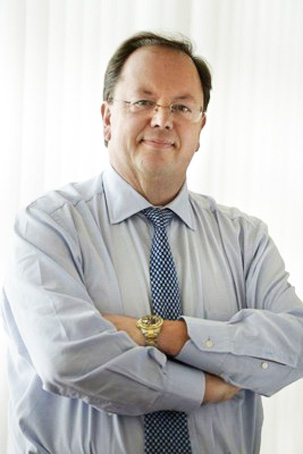Sofidel Expanding in U.S. with New, Integrated Tissue Mill in Oklahoma
![]() Print this Article | Send to Colleague
Print this Article | Send to Colleague
 Sofidel, Italy, one of the world’s largest tissue (for hygienic and domestic use) production players, this week announced a major step forward in its international growth—a new greenfield, integrated (both tissue mill and converting lines) operation in the U.S., at Inola, Okla., about 30 miles east of Tulsa.
Sofidel, Italy, one of the world’s largest tissue (for hygienic and domestic use) production players, this week announced a major step forward in its international growth—a new greenfield, integrated (both tissue mill and converting lines) operation in the U.S., at Inola, Okla., about 30 miles east of Tulsa.This is the Group's second greenfield investment in the U.S., with the construction of a brand new mill, starting from the laying of the foundation stone. The company’s first U.S. greenfield operation, an integrated tissue mill at Circleville, Ohio, will become fully operational by the end of this year—2018.
Two tissue machines, with a total output of 120,000 metric tpy, will be installed at Inola, together with the corresponding converting lines to make the finished products (toilet tissue and towels). The overall investment will amount to $360 million over three years (2018-2019-2020), resulting in a mill that will combine sustainability and technological innovation.
"I'm pleased to be able to announce this new greenfield investment, the second in America, following the one in Circleville, Ohio. The purpose of this new investment is to make a significant contribution to our growth in the U.S., one of the most important markets for our Group," said Luigi Lazzareschi, CEO of the Sofidel Group (photo on right). "We're going to build a state-of-the-art integrated plant in Inola to serve the South-Central and Central-Western U.S., a market where we've had a presence since 2012 and where we've grown quickly, year after year."
Work on building the plant will begin this month (March 2018) and will be completed by mid-2020, while the converting production lines and warehouse will already be up and running by mid-2019. Once fully operational, the new mill will employ 300 full-time workers.
Sofidel is a family-run company, owned by the Stefani and Lazzareschi families, and is the second biggest player in Europe today, and sixth worldwide, in tissue paper manufacturing, with a turnover of EUR 1,842 million (2016) and a production capacity of more than 1 million metric tpy.
As noted above, Sofidel’s presence in the U.S. market began in 2012, when it purchased Cellyne Holdings Inc., subsequently renamed Sofidel America. Since then, Sofidel has grown its operations in the country, with production plants in Green Bay, Wis., Haines City, Fla., Henderson, Nev., Tulsa, Okla., and Hattiesburg Miss., together with the Circleville and Inola mills under construction, and the company’s American headquarters in Philadelphia, Pa.
Sofidel's commitment to sustainable manufacturing, highlighted by its participation in the WWF Climate Savers program, is demonstrated by specific measures to reduce greenhouse gas emissions and safeguard water resources, as well as by the procurement of pulp certified by independent third parties with forestry.
The Sofidel Group is one of the leading manufacturers of paper for hygienic and domestic use worldwide. Established in 1966, the Group has subsidiaries in 13 countries—Italy, Spain, the U.K., France, Belgium, Germany, Sweden, Poland, Hungary, Greece, Romania, Turkey, and the U.S.—with more than 5,500 employees, a consolidated turnover of EUR 1,842 million (2016), and a production capacity of more than one million metric tpy per year (1,058,000 metric tpy in 2016).
"Regina," Sofidel’s most well-known brand, is present on almost all the reference markets. Other brands include Softis, Le Trèfle, Sopalin, Nouvelle, Thirst Pockets, KittenSoft, Nalys, Cosynel, Yumy, Soft & Easy, Volare, Onda, Lycke, Forest, Nicky, and Papernet. A member of U.N. Global Compact and the international WWF Climate Savers program, the Sofidel Group considers sustainability a strategic factor with regards to growth and is committed to promoting socially and environmentally responsible development.


